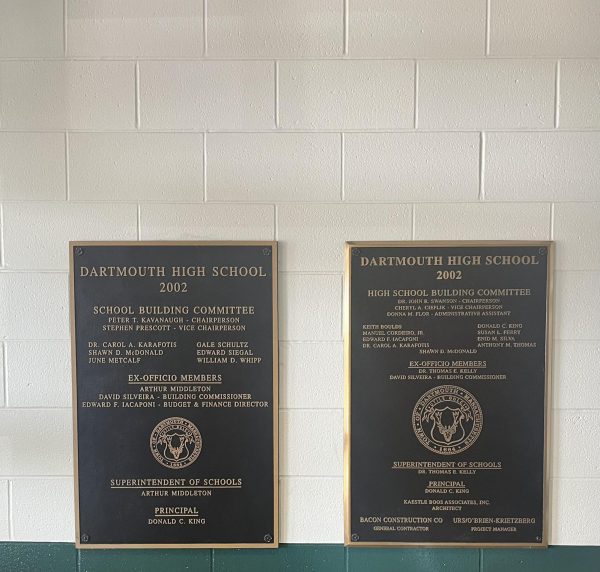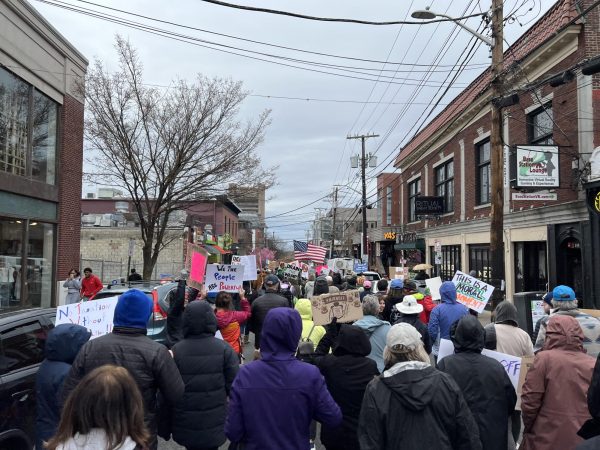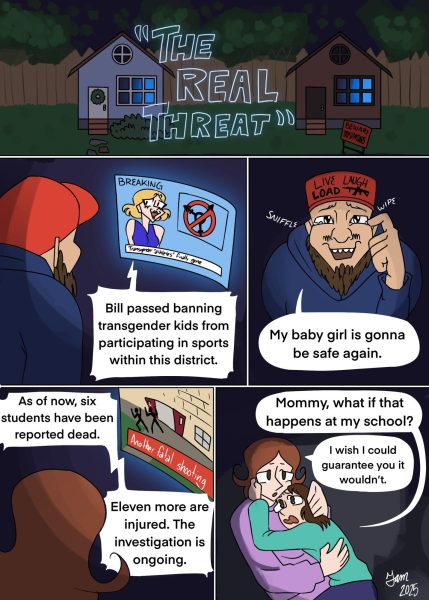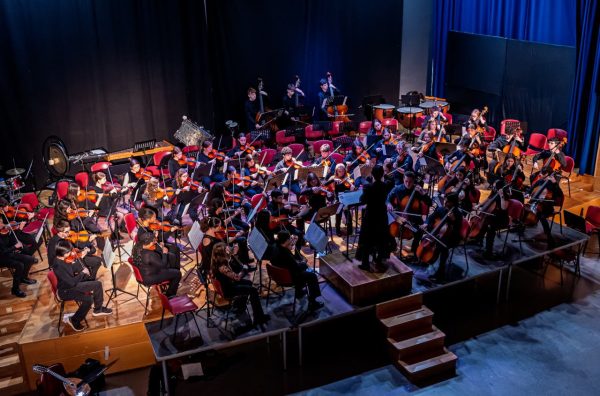Letter to the Editor: Kindness rally misses the mark
“I tried to befriend Nikolas Cruz. He still killed my friends.” -Isabella Robinson, Marjory Stoneman Douglas High School senior.
In lieu of participating in the nationwide high school walkout to advocate stricter gun laws, DHS instead chose to come together in a voluntary assembly to mourn those lost in the recent Parkland massacre. Students took part in two moments of silence, a “see something, say something” pep talk, followed by the proposition of eliciting the spread of a hashtag that reads, “#whatsyour17.”
While this assembly was touching and a great opportunity for students and faculty to unite and offer condolences to the victims of the Parkland shooting, the overall meaning of the March for Our Lives movement was stifled by a discussion focusing mainly on spreading kindness. A student leader who aided in organizing the rally said, “We talked about making it a kindness campaign so everyone is on the same side instead of split by politics.”
“What we were trying to do was strike a tone where we could make that message without having a huge backlash from the pro gun folks,” said DHS Principal Ross Thibault. “When there’s violence like this, it impacts everyone, regardless of whether you’re pro gun or anti gun.” Mr. Thibault explained that the focus was on unity and avoiding “derisive rhetoric.”
The political upset, though, is not intimidating. Fear of potential arguments should not prevent schools from embracing the basis of March for Our Lives. This “unifying” message is valuable, but is forcing administration to neglect the reason behind walk outs.
Education on gun laws, methods in which teenagers can voice their opinions to politicians, and consideration of suggestions on improving school security are just a few progressive and productive topics that would have been valuable if touched upon during the rally; they align with the principles of March for Our Lives.
Education on gun laws, methods in which teenagers can voice their opinions to politicians, and consideration of suggestions on improving school security are just a few progressive and productive topics that would have been valuable if touched upon during the rally; they align with the principles of March for Our Lives.
The movement was created by Emma Gonzalez and some of her fellow classmates from Stoneman Douglas High School in an attempt to gain congressional recognition and urge change, specifically on gun control.
SouthCoastToday praised Dartmouth High for not including “any mention of gun control, the Second Amendment or the NRA.”
The sole purpose of the movement, however, was the exact opposite; it was created to serve as a voice for the youth of the United States. This voice was dwarfed by a fear of instigating an argument between students on opposing sides of the political spectrum. As would an article such as this. However, a risk of political debate is one students are willing to take in light of recent events, as are we in writing this article.
School Resource Officer Rick Pacheco spoke of safety precautions during the rally, saying, “If you see something, report it.” While exposing suspicious activity is essential, it should not be our go-to form of defense. Other safety measures not mentioned by Officer Pacheco include a new buzzer system for the front doors and the instituting of the A.L.I.C.E. program.
“I think we need more armed guards that are assigned to each floor,” said senior Tyler Gregoire.
When proposed with this idea, Mr. Thibault replied by saying he is not opposed to hiring more police officers, but does not view it as reasonable due to expenses.
Student leaders and administration proposed the idea of “#whatsyour17” to the high school body. A movement which asked students to perform small acts of kindness to create a happier environment. While this is great way to promote a kinder school setting, it should not be the only new implementation as a response to mass school shootings. What began as a passionate protest for improved legislation and safety measures morphed into a calmer suggestion of optimism and friendliness.
Acts of kindness, while undeniably necessary, are not strong enough methods to prevent gun violence within school walls. “Starting a hashtag and picking up pencils isn’t going to stop violent individuals from acting on violent impulses. We need legislation and the right to protest for it,” said junior Eleanor Rosen.
While children do need support, it is crucial to also improve legislation, and better security. The #whatsyour17 campaign should therefore accompany the March for Our Lives movement rather than replace it.













DL • Apr 10, 2018 at 6:36 pm
Well done. I’m proud of you for voicing your valid concerns while acknowledging the efforts of the school. School is not about teaching you what or how to think, it’s about teaching you to get informed and become active citizens. If we don’t learn how to communicate during disagreements, what hope do we have coming to a compromise?
julia • Apr 9, 2018 at 3:26 pm
Finally someone has adressed the problem with this rally rather than praising dartmouth high school for downplaying the issue. All through school teachers have taught us we should stand up for what we believe in, but when it comes to our safety they don’t believe we can handle real world problems? Why now? This is bigger than random acts of kindness and deserves to be treated with the seriousness this topic holds.
Anon • Apr 9, 2018 at 10:37 am
I would respect the people doing the rally so much more if they admitted what the rally was about, even if I don’t agree with it. The people behind the rally didn’t want to bring anyone together, they just knew that if someone like Mason Perreira dabated then about gun control, he would mop the floor with them
Cameron Aguiar • Apr 9, 2018 at 10:23 am
I 100% agree with this, yes it’s good to report something suspicious, but why wait for something like that to happen? There should definitely be more safety precautions being put in effect, rather than spreading kindness and having a moment of silence. “Student safety is key” I’ve heard, but I guess spending a lot of money on keeping us safe isn’t worth the money.
Dolores • Apr 9, 2018 at 10:22 am
The point of the rally was missed completely. People don’t have to agree on politics to agree that children and the general public shouldn’t be subjected to gun violence.
John Correiro • Apr 9, 2018 at 10:21 am
Why is argument such a bad thing? That’s how problems get solved
Jane Doe • Apr 9, 2018 at 10:21 am
When a students life has a price tag- There needs to be a universal code for classrooms to follow during emergency like school shootings, whether every class, by floor, department, along those lines. Feeling unsafe in certain rooms due to unclear protocol is not an environment which students should learn
Ben Costa • Apr 9, 2018 at 10:20 am
Lol so our lives have a price ? You add a stronger force to protect us because you don’t feel like spending money ? What a joke. Bring back Dr.Gould
Angelo Nicolosi • Apr 9, 2018 at 10:20 am
I just don’t understand how my safety is less important that school budget.
sam brodsky • Apr 9, 2018 at 6:42 am
Well said. Thank you for the real words and actual opinions.